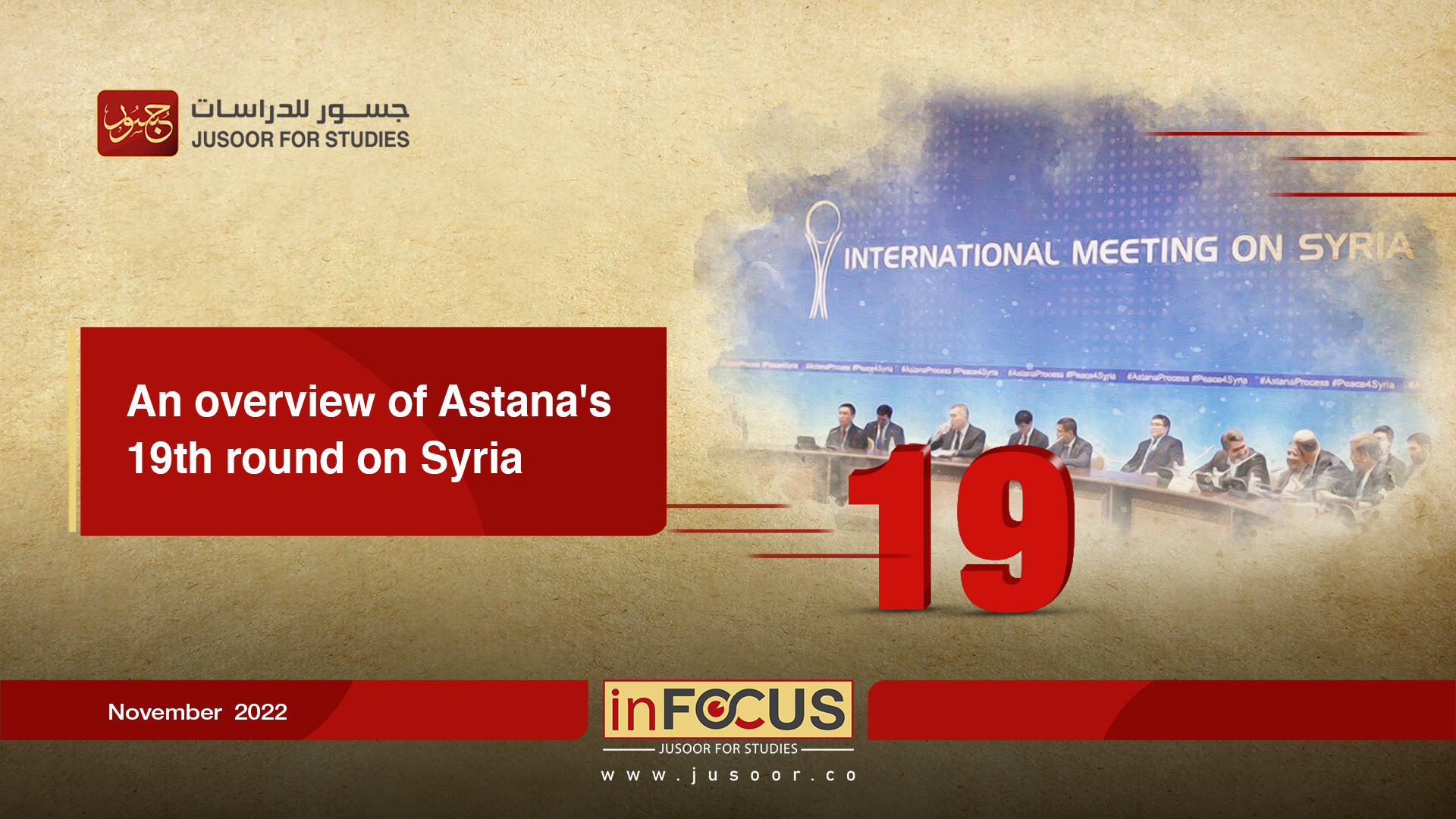An overview of Astana's 19th round on Syria
The 19th round of the Astana talks on Syria, held on November 22 and 23, 2022, was concluded. It was attended by delegations of the guarantor countries, (Russia, Iran and Türkiye), the Syrian regime, and the opposition. Moreover, attending meetings of the Summit as observers were delegations from Jordan, Iraq and Lebanon attended as well as representatives of the United Nations and the ICRC.
In the final joint communiqué, it was decided that the next Astana meeting will be held in Russia in the first half of 2023, according to the agreement reached between the guarantor countries in July 2022.
It is noted that the final communiqué was protocolic with few repeated amendments from previous Astana rounds like reaffirming the participants’ commitment to the sovereignty, independence, unity and territorial integrity of the Syrian Arab Republic. It also expressed support for the political process, including the path of constitutional reform, continuing the release of detainees and abductees, facilitating the return of refugees and internally displaced persons (IDPs), and other items.
What is new in the communiqué is the reference to solving the problem of the stalling of the Constitutional Committee’s negotiations for the past 6 months. In this regard, the guarantor delegations made promises to resume their work in Geneva, although no date was fixed.
Furthermore, the communiqué condemned the shelling of the IDP camps- without naming the attackers- in a reference to the "attacks targeting" 6 camps in Idlib on November 6, 2022.
Once again, the issue of combating terrorism and the separatist agenda were present in this round. What is new, however, is the emphasis on standing against any attacks that threaten the national security of neighboring countries through cross-border attacks or infiltrations, in reference to the bombing in Istanbul, Türkiye's.
It is clear that Türkiye has been the main beneficiary of this round, as it has many negotiating cards, especially after the security situation imposed by the Istanbul attack in mid-November. Furthermore, what gave Ankara an advantage in this version of the Astana are the political opportunities gained by Türkiye connected with Türkiye’s regional and international positioning after the successive crises since Russia launched the military operation in Ukraine in the first quarter of 2022.
On the other hand, Russia seemed interested in this round; especially its positive interaction with Turkish demands, due to its concerns of securing its borders and interests in the south. This is linked to the Russian-Turkish interaction that has been marked as positive for more than 6 months but not only limited to this round.
In contrast to the opposition delegation that is so attached to the Turkish position, the regime delegation did not seem to be involved in this round. That was clear in diminishing the delegation and the absence of prominent officials from it. Not only that, but also the regime's delegation participation in discussions or interests chasing were so weak.
All in all, the main and most important goal of this round was the keenness of the guarantors - especially Russia and Türkiye - to keep the Astana track alive, so that guarantors could activate it and give it further dimensions as required. Furthermore, it was meant to be a platform for announcing Russian-Turkish understandings concerning the Syrian file.

